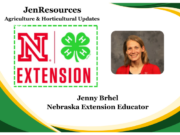BY: ZACH WENDLING – JULY 30, 2024
Nebraska Examiner Press Release
LINCOLN — Dozens of statewide business, municipal, and county leaders lined up Tuesday to testify against Nebraska Gov. Jim Pillen’s core property tax proposal.
For more than 10 hours, the Legislature’s Revenue Committee listened to varying perspectives about Legislative Bill 1, which Pillen says would reduce the average Nebraskan’s property tax bill by up to 50%. State Sen. Lou Ann Linehan of Elkhorn, the committee chair, introduced the bill on Pillen’s behalf and presided over the committee hearing.
“There’s not just one key to solving this problem,” Pillen told the committee. “I think it has to be addressed from a multitude of different perspectives.”

Over the summer, Pillen had suggested the state should take over about 80% of the property tax portion of local K-12 school districts’ budgets.
However, as introduced, LB 1 doesn’t include that plan. Instead, it seeks to carve out more than $2 billion in tax credits targeted to replace school taxes. Those credits would be returned to counties and distributed to taxpayers based on their portion of property valuations.
Funding sources include new sales taxes on more than 100 currently tax-exempt goods and services and increased or new taxes on seven “sin” items: soft drinks and candy, cigarettes, vapes, spirits, consumable hemp, keno, and games of skill.
LB 1 would also restrict municipal and county governments from increasing their annual property tax collections by the greater of 0% (in deflationary times) or the consumer price index. They could skirt those limits if approved by a public vote or in cases of emergencies, local growth, or if needed to fill vacant law enforcement, firefighting, or correctional officer positions.
What is a ‘sin’?
Kirk Anderson, president of the Nebraska Beverage Association, focused his criticism at Pillen for labeling soft drinks and candy as a “sin” and passing judgment on the people who buy them.
Anderson noted that Pillen has said “food” would not be taxed, yet soft drinks or candy could open the door to a standard in choosing what foods can be taxed in a complicated tax code.
“Using similar logic, if our governor was really concerned about the health of Nebraskans, it would be more appropriate to consider limiting through taxation the consumption of all processed meats, like bacon, ham, and salami, that are classified as a Group 1 carcinogen,” Anderson said.
Pillen’s family owns a major hog operation in Nebraska and stands to benefit from LB 1, Anderson said, yet it is “one of the few select industries that won’t be targeted by his taxes.”
Cody Schmick, owner-operator of Kinkaider Brewing in Lincoln, said an increased “sin” tax on spirits, increasing from $3.75 to $14.50 per gallon, would kill off the industry “before we get started.”
Todd Roe, founder of Lazy RW Distillery in Moorefield, said the proposed 287% increase would “drown us” and the distillery “will be done” within three years if LB 1 is passed. He said that his distillery prepares about 250 gallons of spirits each month but that customers may shop in a different state if the tax is added on.
“No matter how loyal they say they are,” Roe said of his customers, “everybody’s loyal when you’re sitting in Hy-Vee giving out free shots.”
Opponents raised concerns about nearly every one of more than 100 goods and services that would be newly taxed under LB 1, in addition to the “sin” taxes.
Business ‘inputs’
The statewide sales tax rate is 5.5 cents per dollar purchase plus local sales taxes, which can be between 0.5 cents and 2 cents.
All goods and services would be taxed under that system, except for four items: agricultural and manufacturing machinery and equipment, which would be taxed at 2 cents, and carpentry services and electricians’ services, at 4 cents. These items would be exempt from local sales taxes.
Pillen’s staff has told the Nebraska Examiner that machinery and equipment are still intended to be taxed at a 4-cent rate, as previously planned, although that would require an amendment to the bill.
Mark McHargue of the Nebraska Farm Bureau and Heath Mello of the Greater Omaha Chamber of Commerce said even at those lower rates, taxing business or agricultural “inputs” would be bad tax policy. Mello is a former state senator.
Multiple testifiers described the proposed changes as a “tax pyramid scheme” that would decrease transparency as taxes are passed on after multiple taxed stages of production.

Linehan asked McHargue and Mello for their definition of “inputs.” McHargue described inputs as raw materials used to produce an end product, which is taxed. Mello’s definition also included legal and accounting services, which Linehan said might be more broadly tax write-offs.
Bryan Slone, president of the Nebraska Chamber of Commerce, said the state can’t tax its way out of its decades-long property tax problem and that it must grow its economy.
“This bill will fall specifically on young people who don’t own property yet,” Slone said. “I will be a benefactor, and a lot of my age group will be benefactors, so we need to be very careful in how we tax people.”
Passing on savings to tenants
Andy Marsh of Keystone Properties in the Grand Island and Hastings areas pushed back on criticism that renters wouldn’t benefit from the property tax savings. He said the “writing is on the wall” for how tenants would benefit.
However, Lynn Fisher and Arla Meyer, both of the Nebraska Realtors Association, said the increased taxes on various goods or services could result in net tax increases for property owners, which would be passed on to particularly low-income renters in less expensive housing.
“Now is not the time to make buying or homeownership more expensive or difficult,” Meyer said.
Dave Nabity of Omaha said something needed to be done to fix property taxes and said people would have to be “financially nuts” to want to retire in Nebraska, rather than in other states.
“Our national reputation stinks, folks,” Nabity said. “We don’t have the Ozarks. We don’t have the lakes. We don’t have the beaches. We don’t have the mountains.… We don’t have the warm weather.”
‘We have wiggle room’
Craig Bolz of Palmyra asked for significant tax relief and spending controls. He urged taxing all sales so the consumer can decide what to purchase, adding: “How much fairer can you get than sales taxes?”
“We all know that at the end of the day, taxes are all smoke and mirrors,” Bolz said.
Rachel Gibson of Omaha said a shift to sales tax from property taxes needs to be “equitable.”
With property taxes, Gibson said, she would know what’s coming and be able to plan accordingly, compared to dealing with unexpected sales taxes on purchases, such as home maintenance, car repairs or veterinary visits.
“We have wiggle room, and we love it here and we’re happy to pay in taxes,” Gibson said. “I’m worried about the people who don’t have the wiggle room and don’t have insurance.”
‘Solving’ vs. ‘prolonging’ a crisis
State Treasurer Tom Briese, who worked on various tax relief proposals in his seven years as a state senator, spoke in favor of the proposal. He described it as a “game changer” and “a different animal.”
“LB 1 creates a stark choice here between solving the crisis vs. prolonging the crisis,” Briese told the committee. He served in the Legislature from 2017 until last Oct. 31.

Briese said he calls “baloney” on critics who said the bill’s impact on Nebraskans would increase or shift taxes. He sees LB 1 as a “much-needed, revenue-neutral, textbook tax reform.”
Ernie Goss, an economist from Creighton University, said he did an analysis of LB 1 and projects the broadening of Nebraska’s sales tax base will stimulate growth. He said property taxes are a greater detriment to growing Nebraska.
Rebecca Firestone, executive director of the Lincoln-based think tank OpenSky Policy Institute, said her organization’s analysis highlights the regressive nature of sales taxes on low-income Nebraskans.
Under that analysis, household incomes for Nebraskans making less than $30,000 would see about 11.24% of their budgets going to taxes and a 0.27% increase in taxes overall. Nebraskans in the top 20% bracket, above $141,700, would pay about 8.84% of their income on taxes and 0.04% less in overall taxes if LB 1 passed.
County and municipal governments
Jon Cannon, executive director for the Nebraska Association of County Officials, and Lynn Rex, executive director of the League of Nebraska Municipalities, expressed caution about the property tax collection caps included in the bill.
Cannon said they could become a “floor” instead of a “ceiling” as county spending is largely focused on roads, bridges, law enforcement, jails, courts, elections, and administration of the state’s tax system. He quipped that officials aren’t using “gold plates” on roads or “mixing diamond dust” with gravel to raise costs.
Rex and Cannon said inflation isn’t accurate when considering “basket of goods” counties and municipalities are purchasing.
“We don’t get fire trucks at Wal-Mart,” Rex said. “We don’t buy police cars at Target.”
Douglas County Attorney Don Klein and Douglas County Public Defender Tom Riley encouraged the committee to include their offices’ spending as a broader exemption of public health and safety.
LB 1 allows local governments to ask voters to approve bonds or other increases above the built-in restrictions. Such votes could only be considered during regularly scheduled elections.
Cannon said elections would be too soon in May and too late in November for his members, who start budgeting in the summer.
The committee took no immediate action on LB 1.
Revenue Committee hearings will continue through Saturday before members work through the 67 bills and constitutional amendments introduced by senators. In total, 105 bills and constitutional amendments were introduced, which Speaker John Arch said was a record number for a special session.
NebraskaExaminer on FB
@NE_NebraskaExaminer on Twitter



































